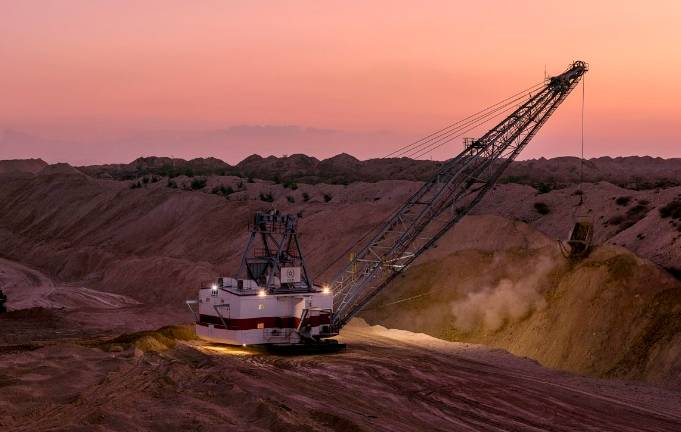Mining activities in Africa, spearheaded by both the private and public sectors, are increasingly emphasizing the adoption of sustainable practices in project execution. These efforts are driven by a commitment to environmental sustainability, social responsibility, and the pursuit of sound business practices.
As the continent focuses on maximizing the exploration and production of its abundant extractive resources, including crucial minerals like lithium and cobalt, Africa is playing a significant role in shaping the global energy transition and fueling economic growth. In this context, sustainability has become a fundamental standard in the industry.
Sustainable Mining Techniques and Land Management
In contrast to traditional mining methods, such as open-pit and underground mining, which have considerable environmental and land impacts, new alternatives like in-situ leaching are emerging as viable options. These innovative techniques allow mining projects to minimize land disturbances and reduce their overall environmental footprint. By incorporating modern mining mechanisms and employing advanced land rehabilitation practices, such as afforestation, operators can mitigate soil erosion and minimize disturbances to vegetation.
Additionally, there are opportunities for mines to enhance environmental sustainability through the re-use of mining waste. Tailings, rocks, and wastewater can be repurposed for various purposes, including the construction of mining infrastructure, dust suppression, and agricultural applications. By effectively managing land and waste, mines can improve their environmental stewardship and contribute to sustainable practices.
Automation
Traditionally, mining operations in Africa have relied heavily on manual techniques, including exploration. However, the advent of advanced technologies such as machine learning, artificial intelligence, cloud computing, the internet of things, robotics, and digital twins holds great potential for automating processes within the mining industry. This shift towards automation can lead to simplified and intelligent mining operations, reducing the industry’s impact on the environment, land, and workers.
Given that Africa is home to some of the world’s deepest mines, the use of digital twins can be particularly beneficial. Digital twins enable miners to create virtual replicas of mining sites, allowing for secure and efficient planning and operation. By leveraging digital twins, miners can minimize land degradation while enhancing worker safety, thereby promoting a more sustainable approach to mining in Africa.
Clean Energy Adoption
The mining sector, being one of Africa’s most energy-intensive industries, holds significant potential to lead the continent’s energy transition and promote the adoption of clean energy sources. This transition is crucial for achieving energy security and reducing emissions. Prominent mining companies like Anglo American, Sibanye-Stillwater, Gold Fields, Harmony Gold, and Impala Platinum have already committed to increasing the use of renewables through large-scale projects in South Africa. However, the renewable energy potential within Africa’s mining sector remains largely untapped, despite its capability to ensure energy security at mining sites and contribute to the stability of national grid networks. By harnessing this untapped potential, the mining sector can play a vital role in driving clean energy adoption and achieving sustainable energy solutions across the continent.
Transport Decarbonisation and Electrification
The efforts of mining companies to transition from diesel and petrol-powered engines to low-carbon and electric vehicles are pivotal in reducing the carbon footprint of the mining industry. A notable example is Anglo American, which has introduced a 2 MW hydrogen-battery hybrid truck at its Mogalakwena Platinum Group Metals (PGMs) mine in South Africa. This initiative is part of the company’s FutureSmart Mining program, which seeks to replace its entire fleet of 40 diesel-powered vehicles with green hydrogen systems. Furthermore, Anglo American aims to achieve carbon neutrality in eight of its mines by 2030. These initiatives highlight the industry’s commitment to adopting sustainable practices and reducing its environmental impact through the integration of clean energy solutions.
Addressing Illegal Mining
Illegal mining operations pose a significant threat to national, regional, and global environmental sustainability, as well as disregard established mining standards. On the other hand, legal mining practices are instrumental in effectively managing land and preserving the environment. They also play a vital role in alleviating poverty and generating employment opportunities within local communities. Additionally, legal mining operations make substantial contributions to a country’s gross domestic product (GDP) growth. By adhering to regulations and sustainable practices, legal mining ensures the balance between economic development and environmental conservation while fostering social and economic benefits for the communities involved.

